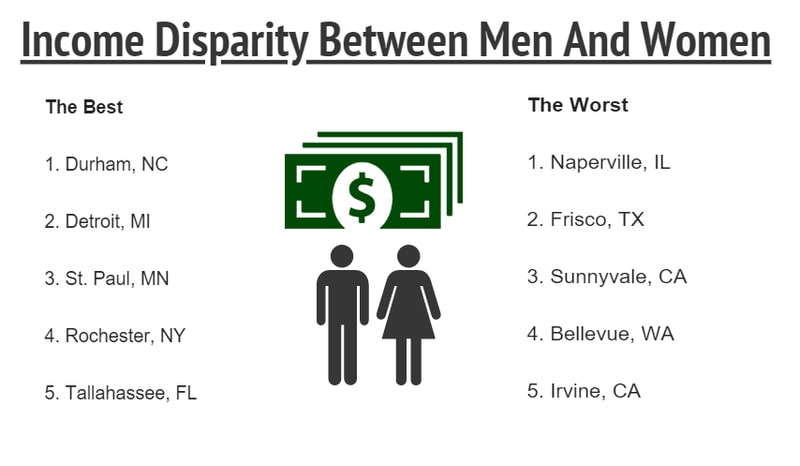- Office Etiquette
- Office Etiquette
- Dating A Coworker
- April Fools Pranks For Work
- How To Be A Good Employee
- Pet Peeves List
- How To Write A Project Proposal
- Qualities Of A Good Worker
- How To Get Along With Your Boss
- What Engaged Employees Do Differently
- What To Say Instead Of Sorry
- How To Send A Friendly Reminder Email
- How To End A Conversation
- Sorry For The Delay
- Tattoos In The Workplace
- Sorry For The Late Reply
- How To Respond To A Compliment
- New Employee
- How To Introduce Yourself Professionally
- Welcome New Employee Announcement
- Welcome Letter
- Thank You Note To Colleague
- 30/60/90 Plan
- Getting To Know You Questions
- Job Satisfaction
- Team Building Activities
- At Will Employment
- Company Culture
- Corporate Culture
- How To Succeed At Your New Remote Job
- How To Prepare For New Job Orientation
- How To Create An Employee Handbook
- Hostile Work Environment
- Hostile Work Environment
- How To Deal With A Difficult Coworker
- What Is Human Resource Development (HRD)?
- I Hate My Job
- Burnt Out At Work
- Condescending Coworker
- Sexual Harassment In The Workplace
- Work Environment
- My Job Sucks
- Favoritism At Work
- Respect In The Workplace
- Wagner Act
- Documentation In The Workplace
- Unconscious Bias
- Ageism
- What To Do When You Feel Unappreciated At Work
- How To Respond To A Warning At Work
- How To Deal With A Passive Aggressive Coworker
- What To Do When You're Unhappy At Work
- I Hate My Boss
- Gaslighting Boss
- Signs You're Underpaid
- Insubordination At Work
- Missing Work
- Communicating
- Send Retirement Wishes
- Write A Congratulations Email
- Professional Voicemail Greeting Examples
- Made A Mistake At Work
- Google Tricks
- Appeal Letter
- Employee Morale
- How To Write A Professional Email
- Out Of Office Message
- Small Group Icebreakers
- Memo Format
- Memo Examples
- Cell Phone At Work
- Meeting Minutes
- Communication Barriers
- How To Take Notes
- How To Brainstorm
- Ask For A Mental Health Day
- Transfer Request Letter And Email Examples
- How To Write A Business Proposal
- How To Deal With A Lazy Coworker
- How To Write A Rejection Letter
- How To Say No
- Scheduling
- Personal Goals
Find a Job You Really Want In
Everyone is going to have a moment where they say “I hate my job.”
Before you go to your boss and tell them that you quit, take time to consider why you hate your job. We will go over what you should do if you hate your job, tips to follow, and how to quit your job.
Key Takeaways:
-
Make sure you don’t go around telling everyone you work with that you hate your job because it get around to your boss.
-
Try to figure out why you hate your job and if it is an isolated situation or an everyday occurrence.
-
Talk to your boss about anything that makes you unhappy about your position because they can help solve any problems you may have.

What to Do When You Hate Your Job
You’ve got that feeling. You’re unhappy, and you dread going to work. You’d go so far as saying that you hate working. It’s more than dissatisfaction; you need a change.
-
Keep it to yourself. The best piece of advice if you hate your job (even if it’s a temporary thing) is to keep it to yourself. Of course, you can tell your significant other or a close friend. In fact, you should have a trusted soul you can vent to – it helps. But don’t advertise your loathing to anyone else, especially coworkers. That can be one of the best ways to get fired before you’re ready.
It may seem obvious, but you’d be surprised how many people walk around their office mumbling about how they hate their jobs. And it’s not just the words you say. Think about the attitude of people who hate their jobs. You can see it right away if you start looking.
-
Find out why you hate your job. This is super-important. When starting a job, there is always going to be anxiety and nerves, but if you are still feeling that way after being at a position after a while, its time to figure out what’s going on.
Start by asking yourself these questions:
-
Do I hate the work I’m doing?
-
Is it just a situation I hate?
-
Is this what I signed up for?
-
Is the work environment not working out for me?
If you can narrow down why you hate your job, it can help you figure out if you want to quit or not.
-
-
Look for a solution. If you discover that it’s just one thing you hate, can that be remedied? At this point, maybe you find that there is a solution, and you need to express your unhappiness to a supervisor or your boss. They might be able to help you find a fix to your problem.
As an example, maybe the work has become tedious. Letting your boss know you’re interested in learning how you can move up the ladder can be a good thing. Or, maybe your unhappiness comes from sitting in an area that’s noisy and distracting. That’s a quick fix and can boost your job satisfaction immediately.
-
Look for another job. You’re not always going to find that the problems at work are simple or easy to fix. Sometimes you realize you’re in the wrong field. No matter what the situation, just looking for another job can help you feel proactive. It also gives you an idea about what the current job market is.
-
Take time to evaluate. Not just your current job, but evaluate yourself. What makes you tick? What do you love to do? If you could have any job in the world, what would it be? Don’t make the mistake of taking the same job with a different company if it’s the job you hate. It might be time for a career change.
-
Learn new things. If you’ve discovered that you hate your job because it’s something you don’t want to do – congratulations! This is a huge step. It’s not just about a career change at this point; it can be a whole life change.
Of course, that’s never easy. In most situations, you’re going to have to learn new things to take a new job. This might mean taking night courses while holding down your job. It could mean saving money so you can quit and go back to school.
It might also be a good time to bring your boss into things and tell them what your plans are. Maybe your job will pay for education and help you fit into the right position. It’s all dependent upon your situation.
-
The coworker conundrum. Do you hate your job because you hate your coworkers? It happens. So, what’s the best fix?
If you like the work you do, maybe you can find another part of the office to work in. Perhaps you can work from home. Maybe you need to find another company to work for; just remember you might run into the same problem there.
-
Is your boss to blame? Sometimes it’s not the coworkers that make the job intolerable; it’s your boss. If you’ve got a toxic boss, there might be no way around it.
You either learn to tolerate them or quit. If there is another department where your talents fit, you might be able to transfer to it. Or if you’re in a situation where there’s clear harassment, then it’s time to report that person.
-
Your job is a dead-end bore. You’ve hit the apex of your career, and you’re suddenly bored beyond belief. Dead-end jobs are the worst if you’re a go-getter. It’s no wonder you hate your job.
If you can’t go anywhere in your current career, then it’s time to move on. Just make sure you’re not quitting without another job lined up. There’s no reason to put gaps in your employment history if you don’t have to.
Tips for What to Do When You Hate Your Job
Okay, so you know you are unhappy, and it might be time to move on, but what do you do in the meantime? What tips can help you wait until a job offer comes along and it’s time to officially give your two-weeks and turn in your resignation?
-
Don’t tell your coworkers. Yes, this is just a different way of saying, “keep it to yourself.” At least for the time being, you don’t want that knowledge to be public information.
-
Change your perspective. Guess what, you now have hope. There is a light at the end of the tunnel. You’ve pinpointed why you’re miserable, you’ve decided on a solution, and you’re going to work toward it. Sure, things are still the same at work, but just knowing you’re doing what you can to get out can help.
-
Don’t be rash. Too many people just get fed up and quit on the spot; no resigning, no notice, etc. This can really hurt your career, especially if you need the income until you find a new job or need the old job to be your reference.
-
Start searching. Don’t just look for any job – unless you’re in a horrid situation – but look for your dream job. Why not? You deserve it. Plus, it’s easier to find a job when you have a job already. Not to mention that quitting makes you ineligible for unemployment in most cases, so you’ll have no income until you do find a job.
While you’re starting to get ready for your job search, update your LinkedIn page with a great headline, summary, and experience section, as well as some endorsements and verified skills if you can.
-
Make the most of your situation. You’re actually in a pretty good place. You have an income, and you know what you want. All you have to do is figure out how to get there.
-
Have proactive conversations. Sure, you were all about venting to your bestie and spouse in the beginning. Now it’s time to change your tune. Complaining only puts the spotlight on your problems. It keeps you stuck in that rut that you’re desperate to escape. Change your conversations and make them about what you’re going to do to make things better. You’ve got this.
Reasons Why You May Hate Your Job
Identifying the exact reasons why you hate your job will make resolving the situation much simpler. It’s easy to grumble that you hate your job, but examining the situation more closely will help pinpoint what you want out of your career.
Here are some of the most common reasons people hate their jobs:
-
Toxic workplace. Whether you work in a highly competitive atmosphere, have to deal with high turnover and negativity, or there’s a culture of harassment in your office, toxic workplaces will poison your professional life.
In extreme cases of toxicity, you may be able to receive unemployment even if you quit, as long as you showed that you tried your best to rectify the situation and alert management to issues you were having.
-
Burnout. Burnout is characterized by exhaustion, cynicism, and inefficacy. If you’re tired at work, don’t care about the work you’re doing, and/or are worse at your job, you’re burnt out. It doesn’t need to be a crazy workload that brings this on — vague expectations, periods of extreme inactivity, or a lack of control at work can all lead to burnout.
-
No career development. When you feel that there’s no room for you to grow or the only places you can move are unattractive to you, you might begin to feel trapped in your career. You’re not inspired and simply feel like a cog in a machine doing the same thing day in and day out.
This problem might not necessitate quitting — moving to a radically different position or joining a new team might be just what you need to feel refreshed.
-
Bad boss. Hating your boss or having a boss that seems to hate you can really ruin your life at work. It might be that one of you is behaving unreasonably or your personalities simply clash, but either way, it’s not fun. In this scenario, you might be able to work things out or change teams, but it’s going to be awkward no matter what.
-
Undervalued. When people stop caring about your work and ideas, it’s hard to continue caring about them yourself. Sometimes, we’d even welcome negative feedback just to prove that somebody’s paying attention to what we’re doing. You can approach management about this problem to see if the situation can be improved, but it might be an endemic cultural problem at the company or a failure of your department’s leadership.
-
No belief in corporate mission. If you work for a company that produces cancer-causing products or takes advantage of child labor overseas, it can be hard to feel good about your career. Even smaller cultural issues can give you reason to hate your job, like your employer supporting a political candidate or policy that you strongly disagree with.
How to Quit Your Job
Eventually, you’ll get your ducks in a row. You’ve gone through some additional training to make you more desirable as an employee. Maybe you’re switching careers and finally got that degree. Whatever the situation, you’ve lined up a new job, and you finally get to quit the job you hate. Sayonara, horrible job.
But you’ve got to hold it together just a little bit longer. Again, burning bridges professionally can light a fire to your career, and you may see it go up in flames. Follow these steps when it’s time to quit your job.
-
Boss first. Resist the urge to tell coworkers that you’re quitting before you tell your boss. Even when you get that job-offer call on the phone, and you’ve got to tell someone, save it for people outside of your job. Then, when you quit, tell your boss first.
-
Give adequate notice. Sure, the rule of thumb is two weeks’ notice, but this isn’t a law or anything. Some jobs require more time to find a replacement. Other jobs will walk you out the door on the day you give notice.
-
Give formal notice. You need to tell your boss, and in-person is probably the way you’ll do it. But turning in a formal resignation letter is essential. It gives everyone a record of the date you’re giving notice and your last day of work. It can also build goodwill and help you get positive referrals in the future.
-
Be professional. Even if you want to tell them where they can stick their job, and you want to unload all of the unhappiness you’ve had, you shouldn’t. Now, that doesn’t mean that you can’t express some of your dissatisfaction in your exit interview. You certainly can, but you need to do it in a very professional manner.
-
No counteroffers. If you truly hated your job, then a counteroffer with more pay and vacation will not make it better. It might be tempting, but don’t do it.
-
Help with transitions. If you are staying for two weeks or longer, offer to help train your replacement and assist in any way they need it. Again, you’re going to want future references.
-
Celebrate. Whether you ask your favorite coworker/friends to join you for a drink after work or you have a full-on blast at home with non-work friends and family. Maybe, for you, a celebration is simply a new pair of shoes. Whatever form it takes, you deserve to celebrate your successes and accomplishments.
- Office Etiquette
- Office Etiquette
- Dating A Coworker
- April Fools Pranks For Work
- How To Be A Good Employee
- Pet Peeves List
- How To Write A Project Proposal
- Qualities Of A Good Worker
- How To Get Along With Your Boss
- What Engaged Employees Do Differently
- What To Say Instead Of Sorry
- How To Send A Friendly Reminder Email
- How To End A Conversation
- Sorry For The Delay
- Tattoos In The Workplace
- Sorry For The Late Reply
- How To Respond To A Compliment
- New Employee
- How To Introduce Yourself Professionally
- Welcome New Employee Announcement
- Welcome Letter
- Thank You Note To Colleague
- 30/60/90 Plan
- Getting To Know You Questions
- Job Satisfaction
- Team Building Activities
- At Will Employment
- Company Culture
- Corporate Culture
- How To Succeed At Your New Remote Job
- How To Prepare For New Job Orientation
- How To Create An Employee Handbook
- Hostile Work Environment
- Hostile Work Environment
- How To Deal With A Difficult Coworker
- What Is Human Resource Development (HRD)?
- I Hate My Job
- Burnt Out At Work
- Condescending Coworker
- Sexual Harassment In The Workplace
- Work Environment
- My Job Sucks
- Favoritism At Work
- Respect In The Workplace
- Wagner Act
- Documentation In The Workplace
- Unconscious Bias
- Ageism
- What To Do When You Feel Unappreciated At Work
- How To Respond To A Warning At Work
- How To Deal With A Passive Aggressive Coworker
- What To Do When You're Unhappy At Work
- I Hate My Boss
- Gaslighting Boss
- Signs You're Underpaid
- Insubordination At Work
- Missing Work
- Communicating
- Send Retirement Wishes
- Write A Congratulations Email
- Professional Voicemail Greeting Examples
- Made A Mistake At Work
- Google Tricks
- Appeal Letter
- Employee Morale
- How To Write A Professional Email
- Out Of Office Message
- Small Group Icebreakers
- Memo Format
- Memo Examples
- Cell Phone At Work
- Meeting Minutes
- Communication Barriers
- How To Take Notes
- How To Brainstorm
- Ask For A Mental Health Day
- Transfer Request Letter And Email Examples
- How To Write A Business Proposal
- How To Deal With A Lazy Coworker
- How To Write A Rejection Letter
- How To Say No
- Scheduling
- Personal Goals





